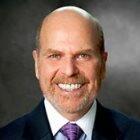Blog
Ten Steps for SME Banking Success

Success with SMEs continues to elude many banks. Instead, they find sustainable profitability difficult to achieve and are experiencing small but increasing inroads into their customer base by alternative finance companies.
Bank management should consider a ten-question checklist to sharpen their strategic focus and ensure a long-term competitive advantage with this critical customer group.
- How does your bank describe Small Business and why? Each bank defines small business differently, usually based on customer revenues. Companies with less than $1mm revenues need to be sold to and serviced very differently than larger businesses. Banks need to decide their strengths and the types of companies they should focus on…and avoid. Banks cannot be all things to all companies.
- Where does Small Business report? Better results will likely result from reporting into the retail group versus the commercial bank group that should remain targeted on larger loans.
- What level of priority does the small business segment have within the bank versus other segments? Banks say they are “small business friendly,” but the reality is often different. How difficult is it for a small business to bank with you? How difficult is it for a small business to be a vendor to the bank? The reality may be far from the self-image.
- What is the quality of your Business bankers and Managers? Small business cannot be a way station or dumping ground for bankers. It needs to be a career position for a bank to establish itself in this area. The best small business banks encourage bankers to remain in this area and provide them with the prestige and compensation to do so.
- What percentage of time do bankers spend on sales versus administrative activities? Bankers who should be spending most of their time with customers; instead, too often they remain behind their desks doing paperwork and filling out forms.
- From the client’s perspective how do you differentiate your products, services, and delivery model? How would your customers describe your value to them? Do they see you as plain vanilla or something unique?
- How effectively does the bank sell to the entire household versus the business only? Banks tend to be silo-oriented. Generating strong profits from small businesses requires banks to capture as much of the business and personal wallet share as possible, including personal loans and investments.
- Is your smaller loan credit process streamlined? Many banks follow a similar process for a $100k loan as for a $1million loan. That leads to smaller loans losing money for the bank and creates too many hurdles for a small business to jump through.
- Have you evaluated working with vendors and third-part lenders to reach more customers and improve the customer experience? Alternative finance companies can provide the technology and processes required to allow for profitable small business lending while the bank keeps control over the customer relationship. Many are anxious to partner with banks rather than compete.
- Does compensation encourage a strong sales effort? While banks need to avoid the conflicts highlighted in the recent Wells Fargo incident, banks need to sell more to each business customer based upon an understanding of that customer’s needs and current product use.
SMEs represent 95% of the world’s companies. Banks cannot afford to lose that franchise and, therefore, they need to refine their current SME approach.
This blog is based on a SME Finance Forum member only webinar. Members may access the webinar recording through our Member App or our Vimeo channel (password required. Please email fsiddique@ifc.org to get your member password).










